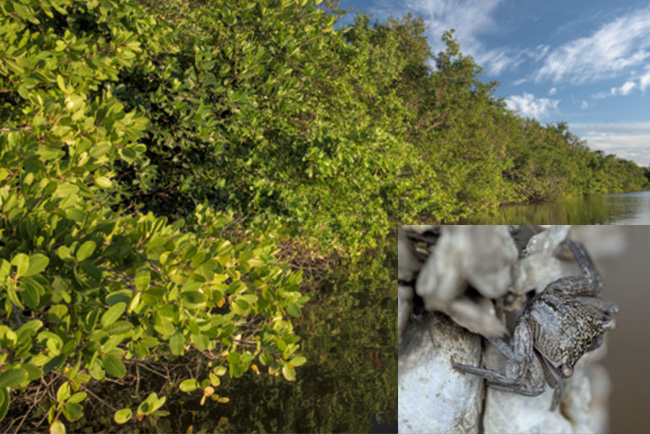Project description
Global climate change causes the distribution ranges of many animal and plant species worldwide to expand, shrink, or shift. Modeling studies show that in particular rapid distribution changes may lead to severe losses of genetic diversity of the shifting species. At the same time, genetic diversity is recognized as a key factor defining a species’ potential to adapt to environmental change.
Within the project “GenoECCMaC”, we investigate the links between climate change-induced habitat expansions and genetic diversity in marine invertebrate species. The Mangrove tree crab Aratus pisonii serves as study system. The distribution limit of this species moved northwards along the Atlantic coast of Florida by ca. 60 km per decade since the early 20th century. In the course of this expansion, A. pisonii additionally performed a habitat shift, and since about 10 years, it establishes in salt marsh habitats north of the northern distribution limit of mangrove trees.
Using high throughput-sequencing, we compile genetic profiles of individuals from the species’ entire distribution range, based on up to several hundred markers per individual crab.
We combine data from recent populations with historical sequence data (hDNA) obtained from crabs in museum collections that were collected up to 140 years ago.
Project Partners |
|---|
|
Prof. Gonzalo Giribet (Harvard University, Cambridge MA) |





